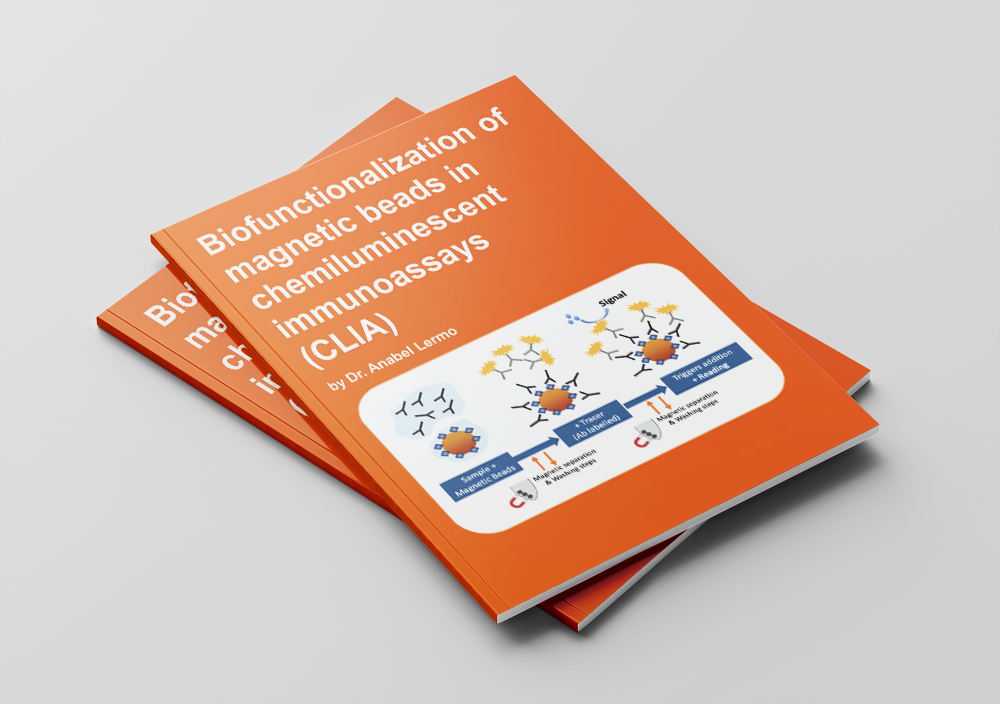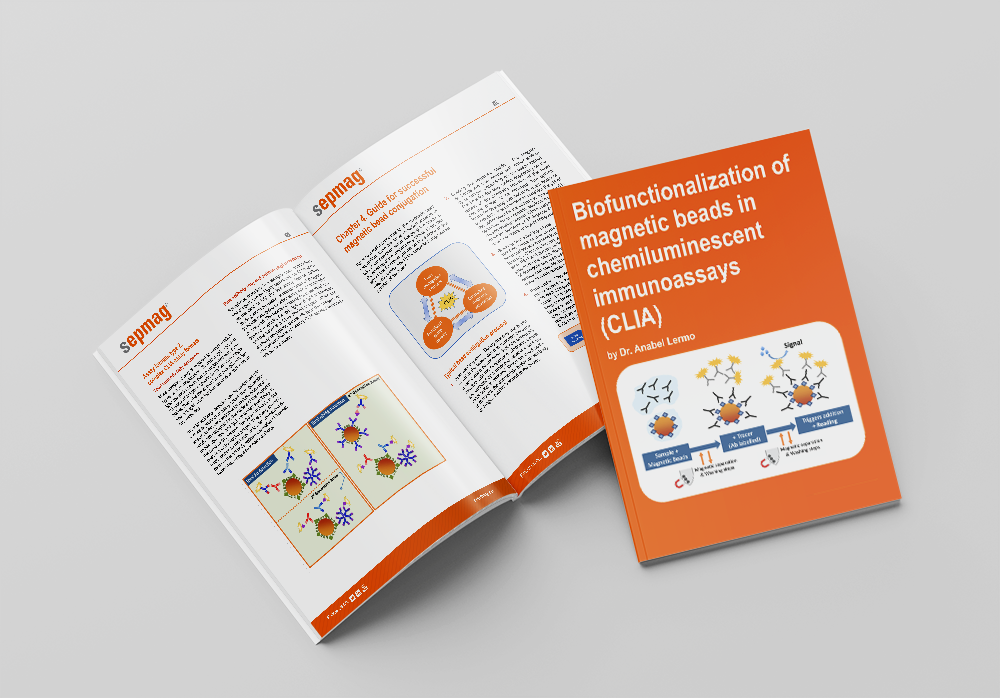Chemiluminescent immunoassays (CLIAs) are among the best solutions for quantifying low concentrations of specific analytes in complex mixtures for in vitro diagnostic industrial processes.
Download the eBook

Similar to enzyme-linked immunoassays, the assay format is typically based on heterogeneous assays. This is where antibodies or antigens are rendered immobile on a solid phase, and one of the components is paired with a chemiluminescent label.
CLIAs offer numerous benefits, which can be further enhanced with the introduction of magnetic beads as a solid platform. This improves the separation of the un-bound reagents and leads to a reduction of interference using a magnetic field.
CLIA assays employing magnetic beads combined with chemiluminescent tagging of immunoreagents are extensively utilized in high-throughput automated platforms. This approach not only amplifies the signal but also significantly reduces matrix interferences, enhancing the accuracy of the results.
The complexity of these immunoassays stems from the need to optimize multiple components and parameters. Critical factors include choosing the immunoassay format that best meets specific requirements, selecting and conjugating the appropriate magnetic beads, and determining the optimal conditions for chemiluminescent labeling.
This eBook offers key information on using magnetic beads in CLIA, including topics such as:
- Magnetic beads in CLIA
- Most frequently used assay formats
- Guide for successful magnetic bead conjugation
- Guide for optimizing CLIA performance and scaling-up
Download the eBook

About Sepmag
Sepmag develops smart and scalable magnetic bead separation equipment for the international diagnostics market and for any user of magnetic bead separation techniques.
Sepmag's innovative Smart & Scalable Magnetic Bead Separators are designed to deliver unparalleled control and efficiency across all volumes, preventing bead aggregation, minimizing material loss, monitoring and keeping records for Quality Control purposes, and maximizing safety.
These benefits are applicable through a range of laboratory settings from R&D facilities to large scale production processes.
Sepmag is based in Barcelona and sells in North America, Europe and Asia.
Sponsored Content Policy: News-Medical.net publishes articles and related content that may be derived from sources where we have existing commercial relationships, provided such content adds value to the core editorial ethos of News-Medical.Net which is to educate and inform site visitors interested in medical research, science, medical devices and treatments.